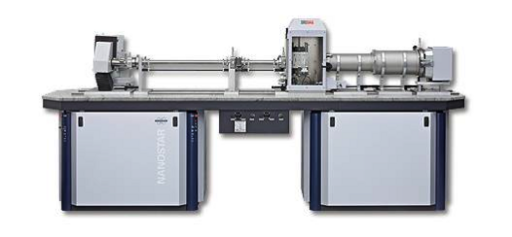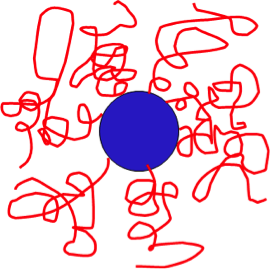

Block copolymers consist of two different blocks of polymers with different properties that are chemically linked together. The polymers used for drug delivery usually have one water-soluble block and one water-insoluble block, so that micelles with a compact core of the water-insoluble block are formed. The block copolymers are used for increasing solubility and bioavailability of the drug by formation of such micelle structures with a hydrophobic compartment for the drug. Most of the used systems have the undesirable property of associating stronger at elevated temperatures preventing release of drugs at body temperature or by local heating. In this project, electrostatically controlled self-assemblies of block copolymer will be investigated with the aim of contributing to the development of systems that can release drugs at elevated temperatures. The Electrostatically controlled self-assembly of temperature dependence will be investigated for systems with self-assembly achieved by varying different system parameters. Small-angle x-ray scattering (SAXS) will be used for gaining new knowledge on the mechanisms and structure on nanometer length scale.
SAXS is the central experimental technique to be used. It is an ideally suited method for obtaining structural information on nano-particles, surfactant and block copolymer micelles. It gives information on shape, size and organization of particles of sizes up to a few hundred nanometers with a resolution of less than a nanometer. The investigations will be done at the in-house SAXS facility and light scattering facility at Aarhus University. During the project the existing SAXS instrument will be supplemented with a new and even more powerful instrument, funded by FNU. Both instruments will employ ‘scatterless’ slits, which has provided a large flux gain and unique performance, and the new instrument will use a new powerful metal jet anode x-ray source. This means that large amounts of beamtime are available for the project. Additional measurements will be performed by dynamic and static light scattering and turbidimetry, which are also available in the PI's lab.
The project will be conducted by a PhD student with professor Jan Skov Pedersen (Aarhus University) as the main supervisor and in collaboration with Prof Bo Nyström's group (University of Oslo), which has extensive expertise in polymer studies and synthesis. Additionally, several bachelor and master’s thesis students will be involved in the research.